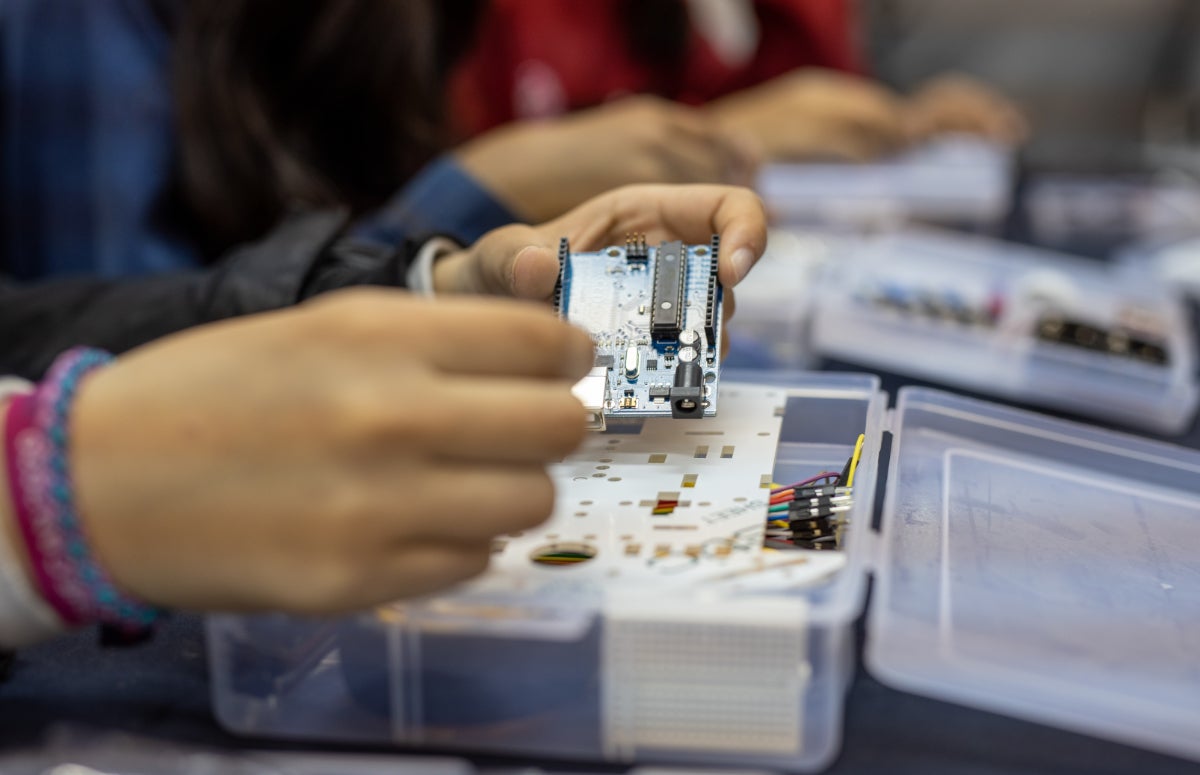In the words of Asmaa Al Hallaq: ‘What makes me most fulfilled is teaching women in the camp what I have learnt, spreading the knowledge and benefit’
Date:
Author: Laura Elhayek

Asmaa Al Hallaq, 30, is a widowed mother of three children and their sole breadwinner. She lives in Al Domani refugee camp in Syria. She only managed to finish secondary school. Prevented by her husband from studying, Asmaa was unable to attend college and has no source of income.
Al Hallaq was among the women who received gender-based violence (GBV) protection services, including case management, counseling sessions, psychosocial support, and awareness-raising sessions. These were paired with emergency case funds and income-generating vocational trainings, all provided by the UN Women Regional Program “Increasing Access to Quality and Specialized GBV Services in Dana Sub-District.”

I used to believe that women’s role in life was merely as a caregiver, nurturer, and homemaker. I participated in the awareness-raising sessions held in the widow’s camps by the mobile team, where I realized that women have the right to education and work and should not give them up at any cost,” Asmaa said. “I understood what it means to be deprived of certain rights, such as the right to inheritance, which I and my children have experienced. I also learned to recognize the different types of gender-based violence, including verbal, physical, and sexual, and how to report them if I ever experience any of them.
In the case management and counselling sessions, I felt incredibly comfortable opening up, expressing myself, and talking about my problems and the challenges I face. The privacy and confidentiality provided when sharing my story were priceless. I wish I had ever felt this way with the closest people to me. The fear of judgement has always haunted me.
I received vocational training in mobile phone repair and maintenance, where I learnt about the different parts and types of mobiles and chargers, how they work, and how to repair them. The first part of training was theoretical, and then we moved to applying what we had learned practically,” she added.
“Income-generating vocational training creates employment opportunities for women and girls, which can significantly contribute to their financial independence and economic empowerment. This, in turn, can boost their self-esteem and make them feel emotionally secure,” highlighted Heba Zayyan, Women, Peace, and Security and Humanitarian Action (WPSHA) Advisor at the UN Women Regional Office for the Arab States.
“Today, I provide mobile repair services to people in our camp, ” Asmaa said. “Before this job opportunity, I did not have any source of income. With my new employment, my stress is relieved to a large extent as I no longer feel marginalized. Work has been a good chance to socialize, meet new people, sell my skills, and network to attract more customers, and expand my business. I have become more patient, tolerant, and calm. I no longer take out my frustrations on my children. I have become determined that I can be productive, and my self-esteem has been highly boosted. My children now see me as a role model and support me in focusing on my work.
I hope that one day I will have my own mobile repair store with advanced repair kits. I look forward to acquiring more skills to improve my work, such as learning the English language, which can open doors for me to new references and allow me to learn more techniques and approaches to mobile phones repair and maintenance. What makes me most fulfilled is teaching several widowed women in the camp what I have learnt about mobile repair, spreading the knowledge and benefits.”